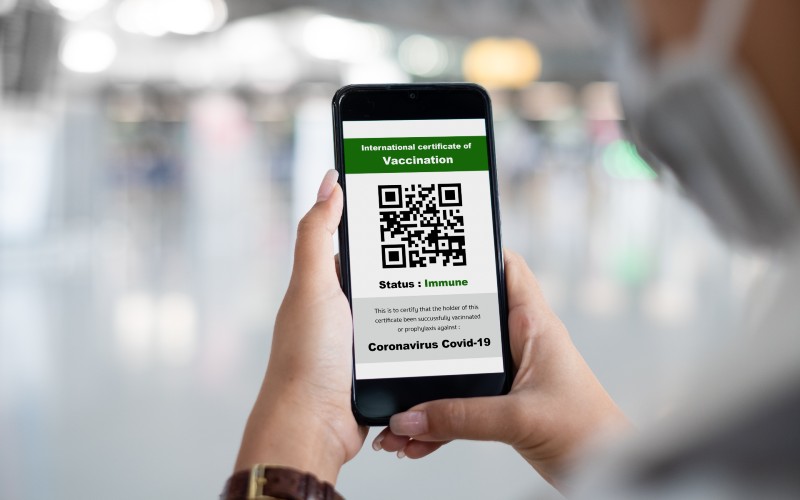
While many manufacturing businesses have been able to operate effectively during the pandemic (albeit in many cases navigating supply chain difficulties and staff absences), as the world continues to open-up after the Covid pandemic the issue of vaccine passports and their role in day-to-day commercial activity is a regular topic of debate.
It is increasingly difficult to travel internationally without being able to evidence fully vaccinated status. Businesses which require their staff to travel across borders will be unable to deploy unvaccinated staff for this purpose.
One complicating factor is that different countries have adopted different rules and expectations around evidencing statements and it can be difficult to keep up. It is a common requirement for delegates at major conferences and trade shows which, in many sectors, are a key part of sales, marketing and networking activities. One of the biggest is the CES technology exhibition held in Las Vegas every January – many of whose exhibits and developments are widely covered in the technology press. For the 2022 event, all delegates to this event will require to be double-vaccinated. (Anyone travelling into the U.S. from Scotland will need to be fully vaccinated simply to make the trip, of course.)
It is also becoming quite common in international supply contracts to encounter terms stipulating that any personnel who will be present at a customer site or who have to deliver services in person will have to be demonstrably double-vaccinated. Organisations which insist on such terms will generally expect also to have rights to inspect and verify information. Failure to comply with requirements like this will often result in certain opportunities simply not being available or, if an existing agreement cannot be fulfilled, legal claims.
The practical effect of this is that both being double vaccinated and being able to show it is a basic job requirement for many people whose work involves international travel or attendance at external events and client sites, particularly in North America. Yet, back here in Scotland, with the exception of certain sectors (such as care homes) it is extremely uncommon to stipulate that full vaccination against Covid should be a pre-requisite of employment. In many cases it may well be discriminatory.
That may depend on the circumstances of individual cases. In settings such as care homes, employers have health and safety duties to their employees and the people that they come into contact with, to minimise the risk of exposure to Covid-19. It would be easier to justify vaccine status requirements in cases such as that. Elsewhere, it may be less clear. For example, some vaccines are not suitable for those with disabilities which are caused by a supressed immune system. Is it fair to deny those individuals a job on the basis of their vaccine status or is that discriminating on the basis of a disability?
Others may have refused vaccines out of personal or philosophical beliefs. The law would not generally recognise “anti-vax” thought as a genuine philosophical belief, but it is clear that such beliefs are passionately held by a significant number of people and this view may come under challenge in the near future. As the booster rollout continues, many people may also have to actively update their vaccine status in coming months, so this issue probably has some way to go yet.
Insight from Liam McMonagle, Corporate and Commercial Partner. For more information contact Liam or any member of the team on 03330 430350.
